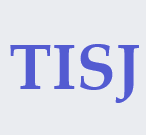Reviewer Guidelines
Introduction
TISJ is committed to maintaining the highest standards of scholarly publishing by adhering to the Committee on Publication Ethics (COPE) guidelines. The role of peer reviewers is central to ensuring the integrity, quality, and relevance of the research we publish. As a reviewer for our journal, you are expected to uphold these ethical standards, offering a fair and unbiased evaluation of submitted manuscripts.
General Responsibilities of Reviewers
As a peer reviewer, you are tasked with evaluating manuscripts in an unbiased, confidential, and constructive manner. Your review will contribute significantly to the editorial decision-making process and help ensure the journal publishes only the highest quality and ethically sound research. Key responsibilities include:
- Impartial Evaluation: Provide an unbiased and objective assessment of the manuscript, without letting personal or professional biases influence your review.
- Constructive Feedback: Offer constructive comments to help authors improve their work. Ensure that your feedback is respectful and focused on the manuscript’s academic content, clarity, and structure.
- Confidentiality: Maintain confidentiality throughout the review process. Do not disclose any details of the manuscript to others or use the information for personal gain.
- Timeliness: Complete your review within the timeframe set by the journal. If you are unable to meet the deadline or need an extension, inform the editorial office as soon as possible.
- Non-Conflict of Interest: Ensure that you have no conflicts of interest related to the manuscript. If you have any potential conflicts, disclose them to the editorial team immediately and recuse yourself from reviewing the manuscript.
Conflict of Interest
As a reviewer, it is essential to be free from any conflicts of interest that could undermine the integrity of your review. A conflict of interest may include, but is not limited to:
- Personal relationships: You have a personal connection with any of the authors (e.g., familial or close personal relationships).
- Professional rivalry: You are in direct competition with the authors in terms of research or funding.
- Financial interests: You stand to gain financially from the publication or rejection of the article (e.g., through funding or commercial interests).
- Academic interests: You have significant academic disputes or disagreements with the authors.
If any conflict of interest exists, or if you are uncertain whether a conflict of interest exists, you must notify the editorial office and withdraw from the review process for the manuscript in question.
Evaluation Criteria
Reviewers are asked to evaluate manuscripts based on the following criteria:
Originality and Significance
Assess the originality and relevance of the research. Does the manuscript present new knowledge, methods, or perspectives that contribute significantly to the field?
Clarity and Structure
Evaluate the clarity of the manuscript, including whether the writing is clear, concise, and logically organized. Does the manuscript effectively communicate its purpose, methods, results, and conclusions?
Methodology
Assess the research methodology, including the design, data collection, analysis, and interpretation. Are the methods appropriate and rigorous? Are the results valid, and is the analysis conducted properly?
Relevance of Literature
Ensure that the authors have reviewed relevant literature and contextualized their findings within the broader field. Are there any significant gaps in the literature review or references?
=Data and Results
Evaluate the quality and integrity of the data and results presented. Are the results reproducible, and are the data presented transparently and in sufficient detail to support the conclusions?
Ethical Considerations
Ensure that ethical standards have been followed, particularly when involving human participants, animals, or sensitive data. Is informed consent documented? Has the study been approved by an appropriate ethical review board?
References and Citations
Review the completeness and accuracy of the references. Are the citations relevant, current, and properly formatted? Are any important references omitted?
Overall Contribution to the Field
Does the manuscript make a substantial contribution to the field? Does it advance knowledge or offer significant insights? Does it address a clear research question or problem?
